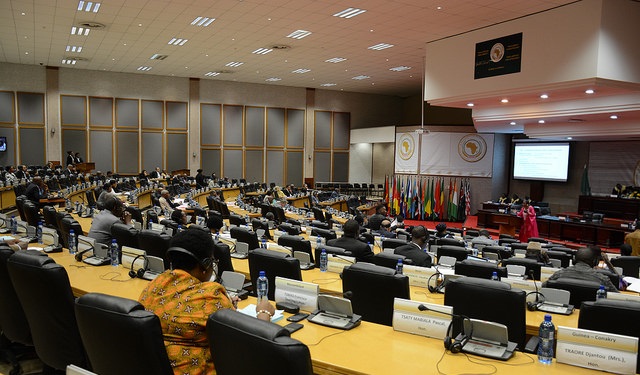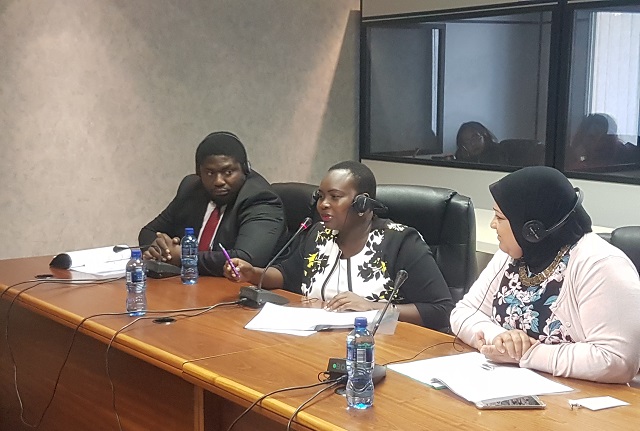
MIDRAND, SOUTH AFRICA | GODFREY SSALI | Women legislators of theAfrican continenthave decried what they have called the persistent marginalization of women in the control of productive resources. They said that despite being the majority population on the continent who account for 80 of food production in Africa, they continue to be sidelined over ownership of land in the legal, customary and social spheres.
They argued that the current large scale land based investments, rampant on the continent,was the biggest threat to women’s access to landbecause it results in the loss of livelihoods, displacement and landlessness.
In a workshop on strengthening women’s access to land in Africaheld at the Pan African Parliament in Midrand, South Africa on Wednesday,legislators explored avenues to close the gender gap for economic development through agriculture.
“Women need land because it is the vehicle for growth and economic development. When people have access to productive resources like land, they also realize their human rights,” Dr. Gaynor Paradza, a land governance expert told legislators, adding that “There is also evidence that points to the fact that women’s lack of access to land contributes to their vulnerability to violence.”
Gaynor observed that while on paper there are international legal instruments and at national level statutory laws and other customary practices, in a continent where 75 percent of land is customary, women’s rights to land are the most insecure because they are not registered.
“Women face challenges in securing land. There are discriminatory land registration and titling programmes and women lack information and empirical evidence to argue their case,” she said.
She commended Rwanda for tackling women’s land inheritance rights where both sexes have equal rights. Uganda was commended for decentralizing land administration to make it more accessible. Gaynor recommended that nation states domesticate international laws and conventions advocating for women’s land rights and rationalize and amend discriminatory land practices.
Anifa Kawooya (Uganda) was dismayed that the issue of land rights has been topical in many conferences but nothing much had happened in addressing the problem.
“In Uganda,7 percent of women own land and I am not happy with this,” Kawooya said. She sought to know the progress by the African Union and the African Development Bank in their campaign to ensure that 30 percent of African women own land by 2025. She observed that many African states had not ratified the Maputo Protocol and that Uganda ratified the protocol with reservations on Article 19.
Mboni Mohamed(Tanzania) attributed the land gender gap to low levels of education and low representation of women in positions of leadership.
“Once a woman has access to education, we have more activists, more presenters, and more women in leadership,” adding that “The moment we have minority of women Parliament, we should forget about the laws changing.” She explained that while customs are what Africa is made of, with many women in Parliament, the retrogressive customary laws would be history.
AmonginJacqueline (Uganda) said that in most countries where less than 10 percent of land is in the purview of land management institutions, it presents a challenge to planning and makes access, tenure and security problematic.

At the national legislative level, the Parliament of Uganda through the Uganda Women Parliamentary Association (UWOPA) is building capacity of rural women and women leaders to be at the forefront of advocating against the issues impinging on their rights to land, especially land inheritance and succession rights. UWOPA has interfaced with women in the Greater North, in the districts of Lamwo, Kitgum (Acholi region) Kaabong and Kotido (Karamoja region) and Nebbi and Arua (West Nile region).
Uganda’s representatives to the Pan African Parliament includeHon. Jacqueline Amongin (NRM, Ngora);Prof. Morris Ogenga-Latigo (FDC, Agago North); Hon. Anifa BangiranaKawooya (NRM, Sembabule); Hon. Felix OkotOgong (NRM, Dokolo South) and Hon. BabiryeKadogo (Ind. Buyende).
 The Independent Uganda: You get the Truth we Pay the Price
The Independent Uganda: You get the Truth we Pay the Price


